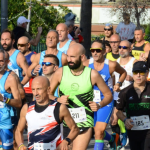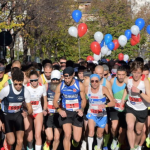Introduction
Spinal health is a cornerstone of overall well-being, yet spine-related disorders affect millions of Malaysians, driven by factors like sedentary lifestyles, aging populations, and occupational hazards. Conditions such as herniated discs, scoliosis, and spinal stenosis necessitate specialized care from spine specialists—medical professionals dedicated to diagnosing and treating spinal ailments. This article explores the role of spine specialists in Malaysia, the pathway to becoming one, leading hospitals like Gleneagles Hospital Penang, and answers key questions about spinal care.
What Does a Spine Specialist Do?
Spine specialists are either orthopedic surgeons or neurosurgeons with advanced training in spinal disorders. Their expertise includes:
-
Diagnosis: Using imaging (MRI, CT scans) and physical exams to identify conditions like degenerative disc disease or spinal fractures.
-
Non-Surgical Treatments: Prescribing physiotherapy, pain management, or minimally invasive injections.
-
Surgical Interventions: Performing procedures such as discectomies, spinal fusion, or artificial disc replacements.
-
Rehabilitation: Collaborating with physiotherapists to restore mobility post-surgery.
Common conditions treated include sciatica, spinal deformities (e.g., scoliosis), tumors, and trauma-related injuries.
How to Become a Spine Specialist in Malaysia
The journey to becoming a spine specialist is rigorous, requiring 12–15 years of education and training:
1. Undergraduate Medical Degree (5–6 years)
-
Obtain a Bachelor of Medicine and Bachelor of Surgery (MBBS) from institutions like Universiti Malaya or Universiti Sains Malaysia.
-
Pass the Malaysian Medical Council (MMC) licensing exam.
2. Housemanship (2 years)
-
Complete compulsory rotations in public hospitals, gaining exposure to general surgery and emergency care.
3. Master’s in Orthopedic Surgery or Neurosurgery (4–5 years)
-
Enroll in a Master of Surgery (Orthopedics) or Neurosurgery program accredited by the Malaysian Qualifications Agency (MQA).
-
Pass exams by the National Conjoint Board to qualify as a specialist.
4. Fellowship in Spine Surgery (1–2 years)
-
Pursue advanced training in spine surgery through local or international fellowships. Institutions like the National Orthopaedic Centre of Excellence for Trauma (NOCERT) offer specialized programs.
-
Focus on techniques like minimally invasive spine surgery (MISS) or robotic-assisted procedures.
5. Certification and Continuous Learning
-
Register with the MMC as a subspecialist and join professional bodies like the Malaysian Orthopaedic Association or the Neurosurgical Society of Malaysia.
-
Attend workshops and conferences to stay updated on innovations like endoscopic spine surgery.
Qualifications and Skills Required
-
Academic Credentials: MBBS, Master’s degree, and spine surgery fellowship.
-
Technical Skills: Precision in surgical techniques, proficiency in imaging interpretation, and familiarity with technologies like intraoperative navigation.
-
Soft Skills: Empathy for chronic pain patients, teamwork with multidisciplinary teams, and crisis management.
-
Licensing: Annual CPD (Continuing Professional Development) compliance is mandated by the MMC.
Leading Hospitals for Spinal Care in Malaysia
Malaysia’s healthcare institutions blend cutting-edge technology and expertise to address spinal disorders:
-
Gleneagles Hospital Penang
-
Overview: A premier private hospital with a dedicated Spine and Orthopaedic Centre.
-
Facilities: Advanced imaging systems, hybrid operating theaters, and robotic-assisted surgical tools.
-
Expertise: Minimally invasive spine surgery, complex spinal reconstructions, and degenerative disorder management.
-
Accolades: Recognized for low infection rates and personalized rehabilitation programs.
-
-
Sunway Medical Centre, Selangor
-
Houses a Spine and Nerve Centre offering endoscopic discectomies and 3D-printed spinal implants.
-
-
Prince Court Medical Centre, Kuala Lumpur
-
Specializes in robotic spine surgery and collaborates with international spine institutes for training.
-
-
Hospital Kuala Lumpur (HKL)
-
Public-sector leader in trauma and spinal injury care, providing subsidized surgeries.
-
-
National Orthopaedic Centre of Excellence for Trauma (NOCERT)
-
Focuses on complex spinal deformities and research-driven treatments.
-
5 FAQs on Spine Specialists in Malaysia
1. When should I consult a spine specialist?
Seek a specialist if you experience chronic back pain, numbness/weakness in limbs, or trauma-related spinal injuries. Early intervention prevents complications like permanent nerve damage.
2. Are non-surgical treatments effective?
Yes. Many conditions (e.g., mild disc herniation) improve with physiotherapy, medications, or epidural steroid injections. Surgery is a last resort.
3. What are the risks of spine surgery?
While generally safe, risks include infection, blood clots, or nerve injury. Success rates exceed 85% in accredited centers like Gleneagles Penang.
4. How long is recovery after spine surgery?
-
Minimally Invasive Surgery: 2–4 weeks.
-
Spinal Fusion: 3–6 months.
Rehabilitation programs expedite recovery.
5. How to choose a spine specialist hospital?
Consider the surgeon’s experience, hospital technology (e.g., robotic systems), and post-operative support. Gleneagles Penang and Sunway are top choices for complex cases.
Conclusion
Spine specialists in Malaysia play a pivotal role in restoring mobility and quality of life for patients with spinal disorders. With world-class training pathways and hospitals like Gleneagles Hospital Penang offering innovative treatments, Malaysians can access exceptional spinal care. As technology evolves, the future promises greater precision in addressing spinal health challenges, ensuring a stronger, healthier population.
References: Malaysian Medical Council, Gleneagles Hospital Penang, National Orthopaedic Centre of Excellence for Trauma (NOCERT), Malaysian Orthopaedic Association.
Want to learn about a cardiothoracic surgeon? Read: https://arnurjaya.net/paediatrics-in-malaysia-nurturing-the-health-of-future-generations/
Want to learn about radiotherapy? Read: https://1hasibul.blogspot.com/2025/05/radiotherapy-in-malaysia-comprehensive.html






